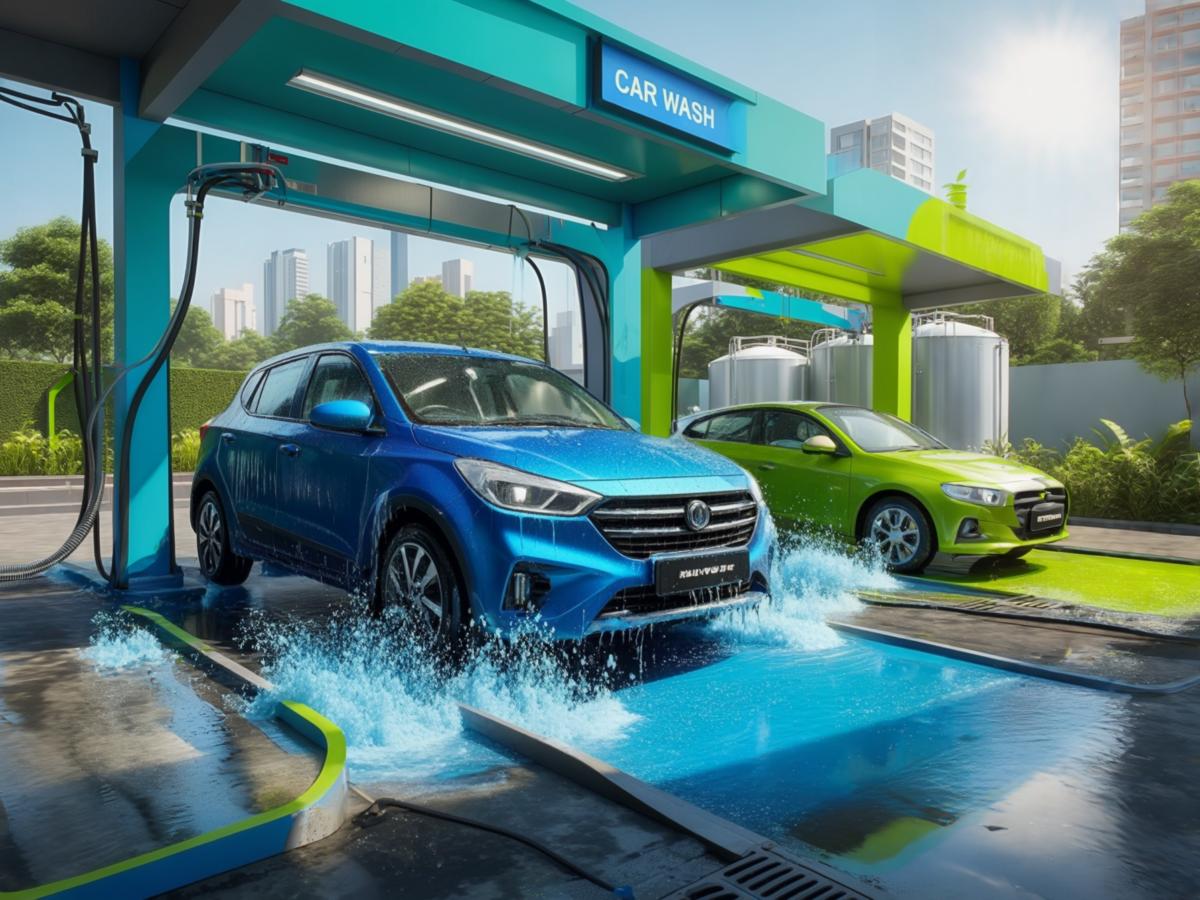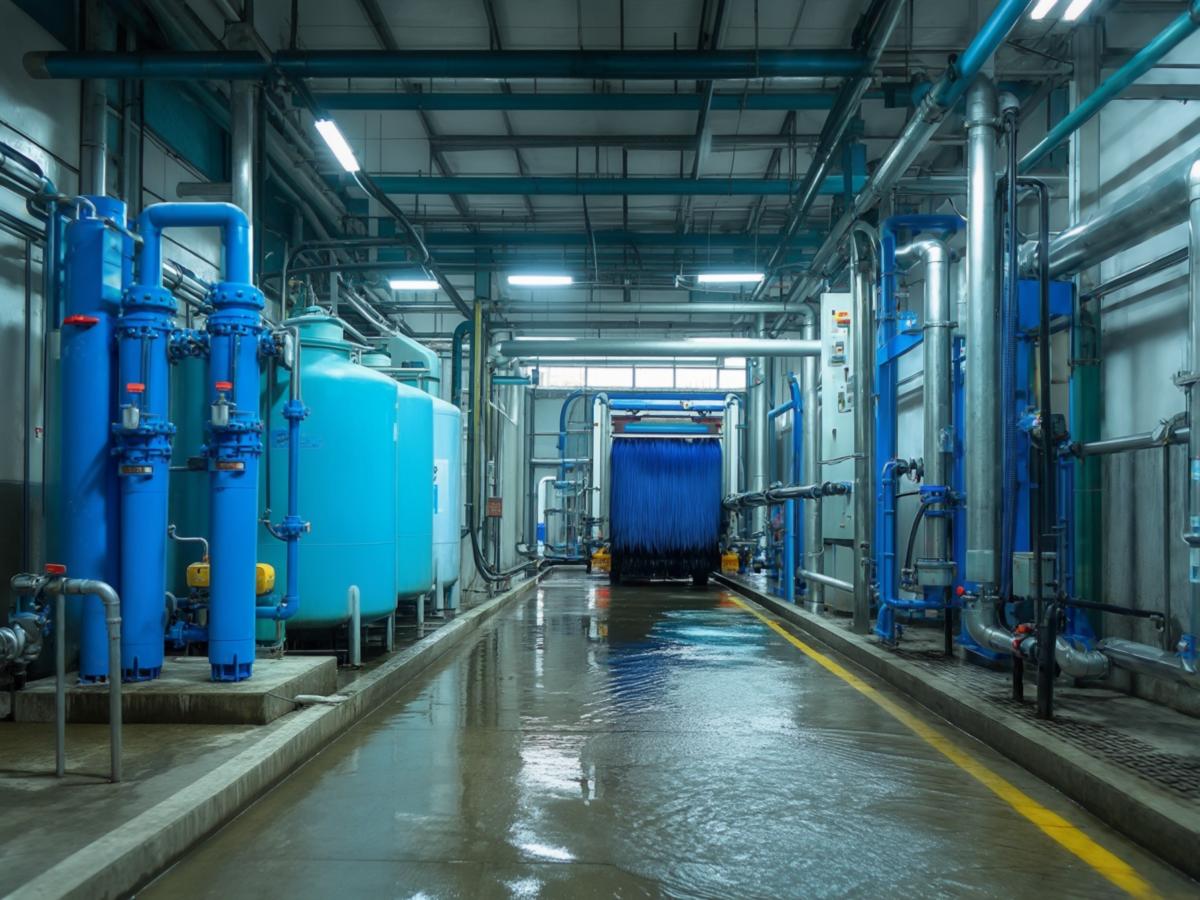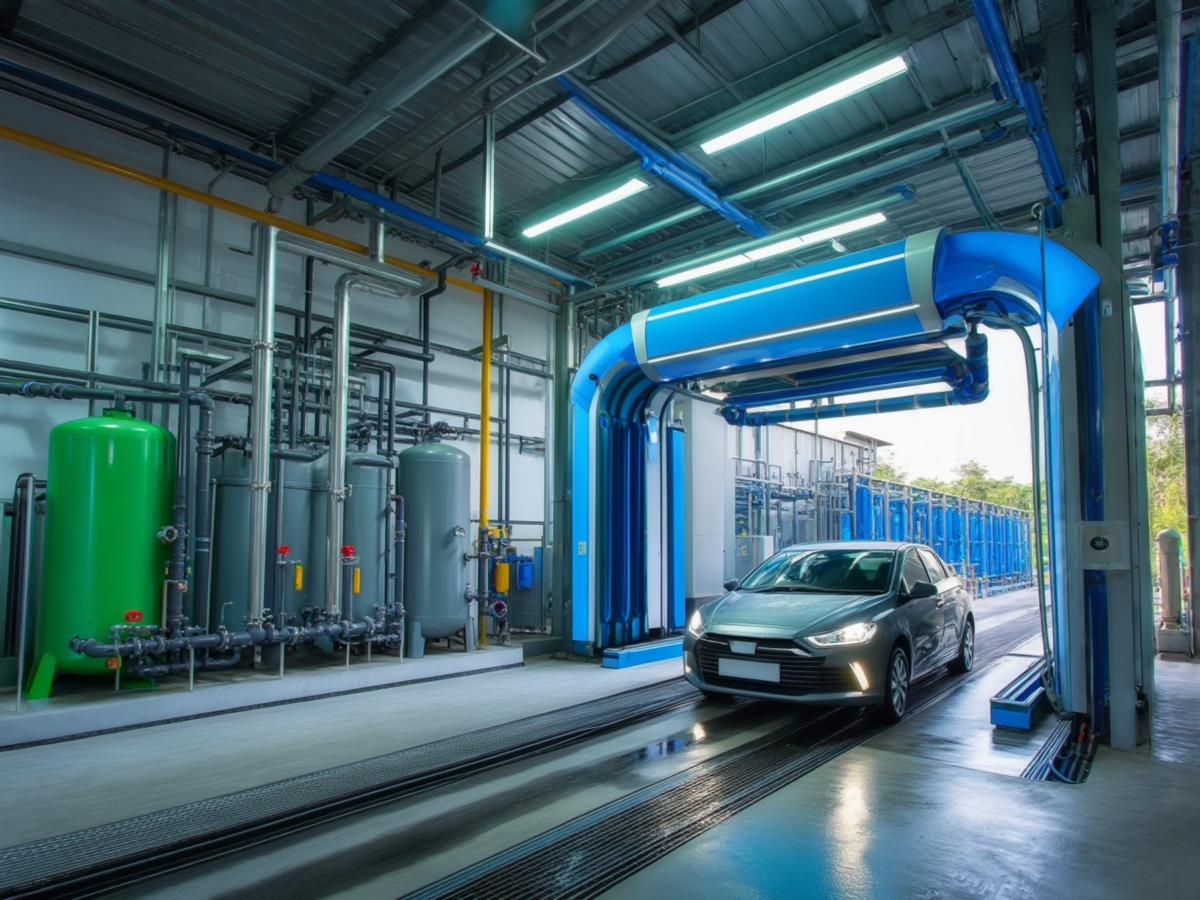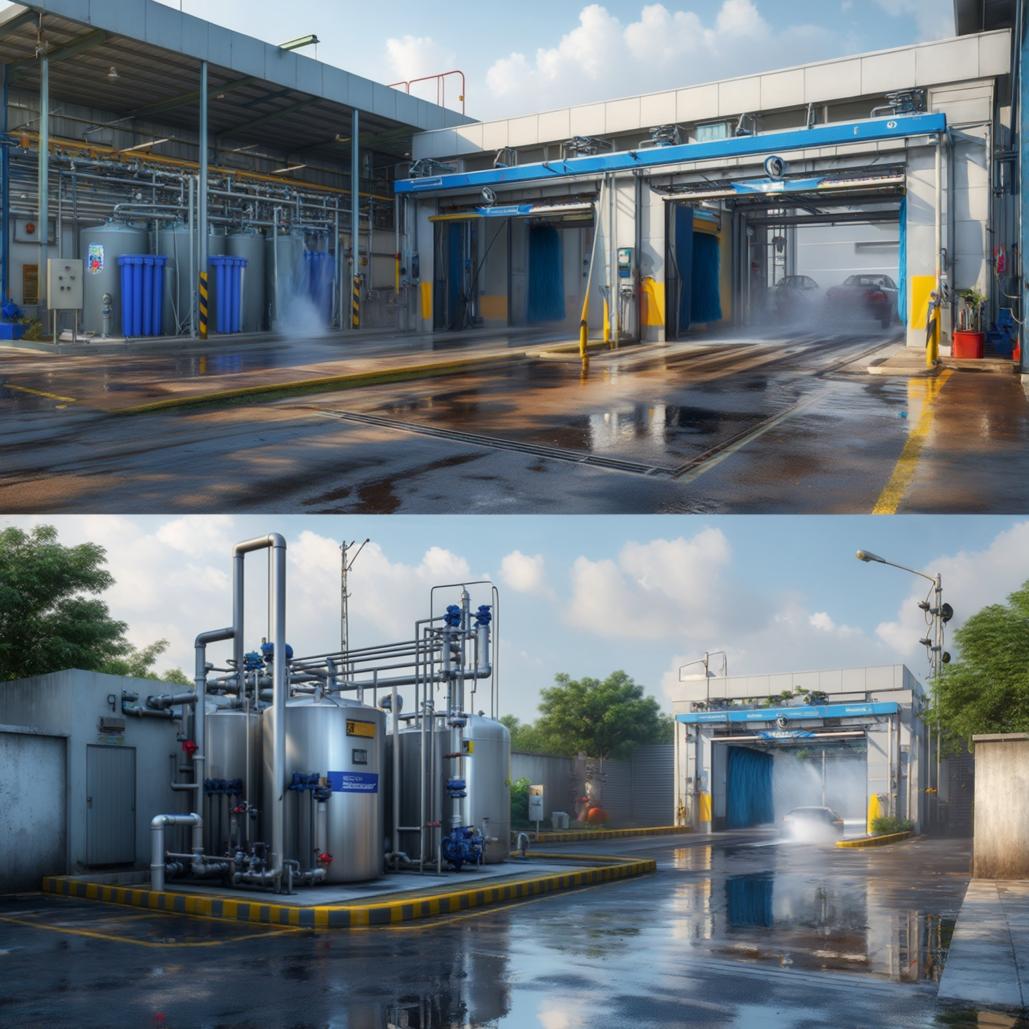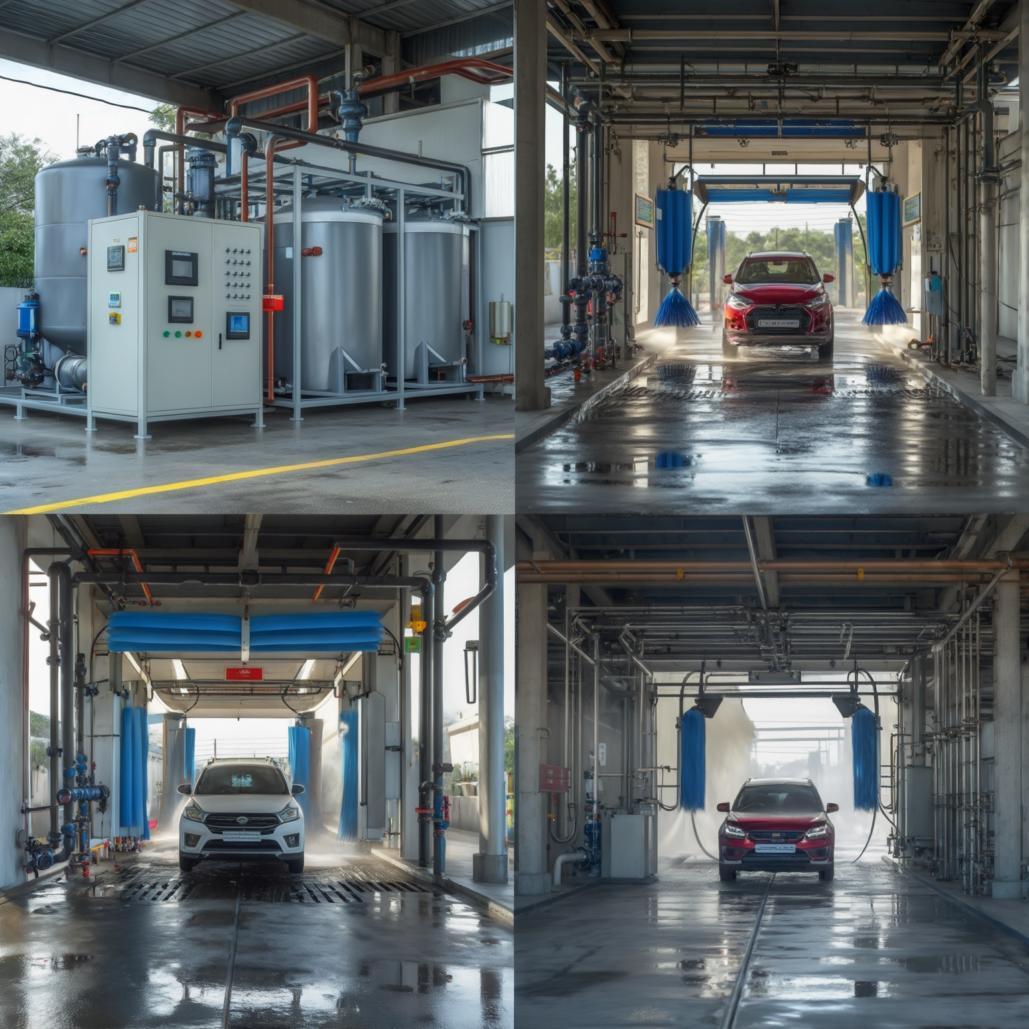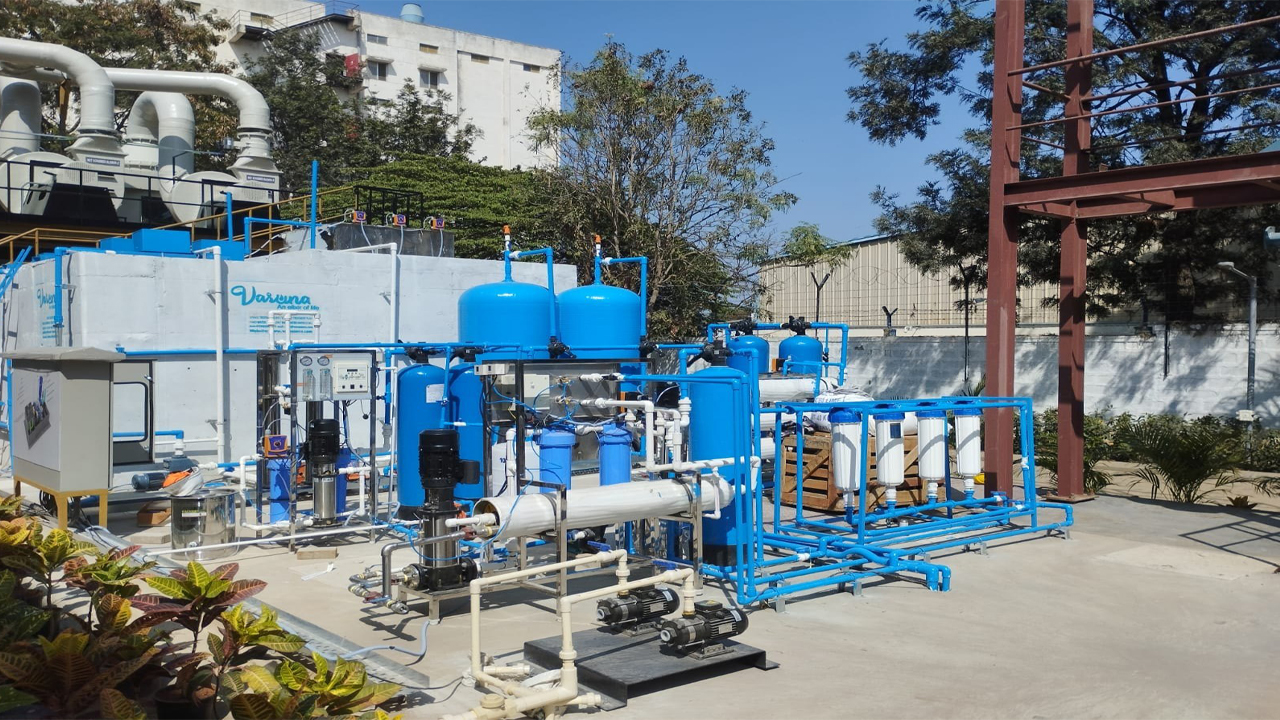
Effluent Treatment Plant (ETP) Explained: Cost, Capacity & Compliance for Your Industry
Whether you're in Bangalore, Delhi, or anywhere in India, Varuna offers advanced, fully-compliant, and reliable ETP solutions tailored for your business.
Introduction: What is an Effluent Treatment Plant?
An Effluent Treatment Plant (ETP) is a crucial facility designed to treat industrial wastewater before it is released into the environment or reused. Industrial processes generate wastewater that contains harmful pollutants, heavy metals, oils, grease, organic and inorganic contaminants that must be removed to prevent environmental damage and comply with government regulations.
With industries growing rapidly in urban hubs like Bangalore, Delhi, Mumbai, and across India, managing industrial effluents is now more important than ever. This blog will walk you through the essentials of an ETP—its importance, working mechanism, suitable capacity for your industry, customization, pricing, and how to stay compliant with CPCB norms. If you're seeking an ETP for industries, especially from a trusted wastewater treatment company in Bangalore or need effluent treatment solutions in Delhi, this comprehensive guide is for you.
Why Your Industry Needs an ETP
Whether you are in manufacturing, pharmaceuticals, food processing, chemicals, textiles, or dairy, your operations are likely producing harmful effluents. Failing to treat these effluents not only leads to severe environmental consequences but also results in penalties, shutdowns, and reputation loss.
Key Reasons to Install an ETP:
-
Meet legal norms by Central Pollution Control Board (CPCB)
-
Avoid heavy penalties and legal liabilities
-
Reduce fresh water consumption by recycling treated water
-
Contribute to your ESG (Environmental, Social, Governance) goals
-
Enhance your brand image as an eco-conscious business
Understanding the ETP Process: How It Works
An Effluent Treatment Plant typically consists of a multi-stage purification process that includes the following stages:
1. Preliminary Treatment
-
Screening of large solids, plastic, paper, etc.
-
Oil and grease trap
2. Primary Treatment
-
Sedimentation tanks to allow solids to settle
-
Chemical coagulation and flocculation to remove suspended particles
3. Secondary (Biological) Treatment
-
Biological processes using bacteria to break down organic matter
-
Aeration tanks, activated sludge process, or Moving Bed Biofilm Reactors (MBBR)
4. Tertiary Treatment
-
Filtration, UV disinfection, reverse osmosis, or advanced oxidation
-
Ensures treated water meets standards for safe discharge or reuse
What Capacity ETP Does Your Industry Need?
The right capacity for your ETP depends on the volume of wastewater your plant generates daily. This is generally calculated as KLD (Kilo Litres per Day).
|
Industry Type |
Typical ETP Capacity |
|
Textile & Garments |
50–500 KLD |
|
Pharmaceuticals |
10–250 KLD |
|
Chemical Plants |
100–1000 KLD |
|
Dairy/Meat Processing |
20–300 KLD |
|
Food Processing |
30–500 KLD |
|
Ready Mix Concrete |
15–100 KLD |
Varuna offers fully customizable ETPs for all industry scales—from micro units to large-scale manufacturing hubs.
CPCB Compliance: What You Need to Know
The Central Pollution Control Board (CPCB) has established effluent discharge norms that vary based on industry type and discharge location (surface water, land irrigation, sewerage).
Key Parameters:
-
BOD < 30 mg/L
-
COD < 250 mg/L
-
TSS < 100 mg/L
-
Oil & Grease < 10 mg/L
-
pH between 5.5–9.0
How Varuna Ensures Compliance:
-
Advanced automation and sensor-driven ETP systems
-
Real-time water quality monitoring with data logging
-
CPCB audit and report assistance
-
Remote diagnostics and support
Effluent Treatment Plant Cost Breakdown
The cost of installing an ETP varies depending on the capacity, type of industry, type of effluent, level of automation, and discharge standards.
General Cost Guidelines for Sewage Treatment Plants (STPs)
The cost of an STP can vary based on several factors, including location, system design, capacity, and specific requirements. Actual costs can differ based on site-specific conditions, technology choices, and other variables.
📞 For a detailed quote tailored to your project's needs, please contact us directly. Our team will assess your requirements and provide a customized solution.
Factors Affecting Price:
-
Civil vs. Precast RCC construction
-
Level of automation (PLC/SCADA based systems)
-
Type of secondary & tertiary treatment modules
-
Site challenges: space, accessibility, terrain
Looking for a cost-efficient ETP for industries? Varuna offers both custom-built and plug-and-play ETPs.
Delivery & Installation Timeline
Varuna takes pride in offering one of the fastest installation timelines in the industry.
|
Type of ETP |
Delivery Time |
Installation Time |
|
Precast RCC Modular |
7–10 Days |
10–15 Days |
|
Civil-Based Traditional |
30–45 Days |
60–90 Days |
With our precast RCC tank technology, we've reduced project timelines by up to 80%. Our recent project at a Government Guest House in Bangalore was completed in just 15 days, compared to a standard 90-day civil project timeline.
Why Choose Varuna for Your ETP?
If you're searching for the most trusted effluent treatment solutions in Delhi, or a top-tier wastewater treatment company in Bangalore, here’s why industries choose Varuna:
✅ Pan-India presence with active projects across Karnataka, Delhi, Maharashtra, Tamil Nadu, and Gujarat
✅ Custom solutions for specific industries and space constraints
✅ Precast RCC tanks for plug-and-play ETP setup
✅ IoT-enabled panels for real-time performance and compliance monitoring
✅ 100% CPCB compliance guarantee
✅ After-sales AMC & remote support
Key Industries We Serve
-
Pharmaceuticals & Biotech
-
Food Processing Units
-
Refineries and Petrochemicals
-
Chemicals & Dyes
-
Automotive & Metal Processing
-
Dairy & Beverage Plants
FAQs on Effluent Treatment Plants
Q1. Can ETP water be reused?
Yes. With tertiary treatment like UV or RO, ETP water can be used for gardening, flushing, and process reuse.
Q2. How long does an ETP last?
With proper maintenance, Varuna’s ETPs can last 15–20 years or more.
Q3. What if our effluent composition is highly variable?
Our design team conducts a complete effluent audit and offers flexible, modular designs that adapt to inflow fluctuations.
Q4. What are the maintenance needs?
We offer easy-to-operate systems with optional AMC plans that include:
-
Quarterly audits
-
Spare parts replacement
-
Online diagnostics
Q5. Can we monitor the system remotely?
Yes. Our IoT dashboards offer real-time flow, BOD/COD levels, maintenance alerts, and compliance logs.
Conclusion: A Smarter Way to Treat Industrial Wastewater
An Effluent Treatment Plant (ETP) is more than a regulatory checkbox—it’s a vital investment in your industry's future. From cutting operational water costs to achieving sustainability goals, the benefits are immense.
Whether you're in Bangalore, Delhi, or anywhere in India, Varuna offers advanced, fully-compliant, and reliable ETP solutions tailored for your business.
Start your ETP journey today with India’s leading wastewater treatment company in Bangalore.
Get expert support for effluent treatment solutions in Bangalore, Delhi and across India.
Let’s build a cleaner, greener, and more compliant tomorrow—together.
